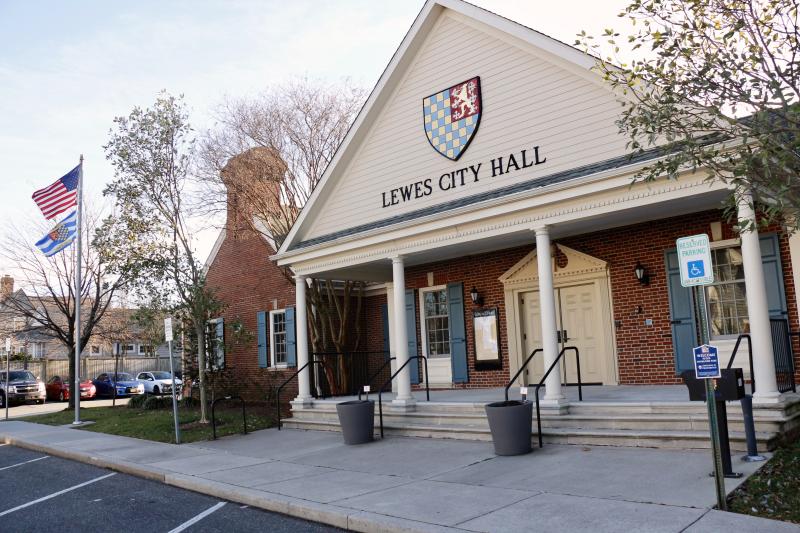Officials researching affordable housing in Lewes
One in three households in Sussex County is spending too much money on housing costs, according to Sussex County Habitat for Humanity CEO Kevin Gilmore.
A house is affordable if the household spends 30% or less of its income paying to live there.
“Affordable housing is not about how much you make. It’s about the relationship between how much you have, how much you earn, how many people are in your house and the cost of the unit itself,” Gilmore said at an affordable housing workshop March 21 in Lewes.
According to the City of Lewes’ five-year update to its comprehensive plan, creating affordable housing in Lewes is a priority and directive. In an effort to eventually provide solutions, officials held the workshop at the Rollins Community Center.
Gilmore broke the ice by explaining affordable housing and the stigma surrounding the term. Illustrating the effect of the crisis on a variety of incomes and family sizes, the Sussex Habitat CEO analyzed the numbers.
Defining the level of income for a person or family is derived from the area median income, AMI. One-person households in Sussex County have an AMI of $58,800, while four-person households are $84,000. Only one industry in Sussex County exceeds the four-person household median for income, professional and technical services. Only healthcare and social assistance jobs join professional and technical services as having average salaries above the AMI for single-person households.
Public administration, manufacturing, natural resources, educational services, retail trade, arts and recreation, and the hospitality industry average wages place their workers in the low-income brackets. Gilmore said those jobs are a vital part of the economy.
“This has become a concern and, frequently, industry leaders are using the term crisis. We have an affordable housing crisis in Sussex County,” Gilmore said. “I have to agree. It's not just an issue for our society. It's not just an issue for those who can't get it. It's an issue for all of us.”
The average annual wage for all jobs in Sussex County is $48,653. An affordable home in Sussex County for four-person households earning 100% of the AMI is $250,000. In Gilmore’s experience, he has found it difficult to construct $250,000 houses in the area without some type of subsidizing. He said the average price of a home in Sussex County is $470,000. The average price of a home sold in Lewes exceeds $500,000. Gilmore said data has incorrectly identified $1,000 as the average monthly rent in Sussex County.
Although property values and housing costs are lower in western and central Sussex County, transportation costs for those traveling east for work negate money saved, Gilmore said. Nearly all of Sussex County becomes unaffordable when factoring in the cost of the daily commute.
Ned Gladfelter, supervisor of human resources for Cape Henlopen School District, said the district was once a desirable destination, but has since struggled to recruit personnel. One recent hire highlighted the lack of affordability.
“There was nothing, so they lived in a hotel outside Christiana Mall for the first two or three weeks. And then they moved to another hotel three weeks later. This is a family with a husband, wife and two kids. Basically, they were homeless for almost two months until we found a place for him to live. But we finally found a place in Dover,” Gladfelter said.
Gladfelter said he has given up on finding locations in the Cape Region because the homes and apartments are either not available or not affordable. He has begun helping teachers find cars because the commute has taxed vehicles more than usual. Gladfelter added there is a demographic disproportionately affected.
“Oftentimes, people of color are the ones who can't get into these homes because they don't have the financial background to do it. I'm finding that's making it more challenging for us as we're trying to diversify our teaching staff,” he said.
La Vida Hospitality Managing Partner Josh Grapski said his company began tracking the reason people were leaving its employ in 2019.
“In the past two years, we've seen 50-plus long-term employees leave because of housing costs,” he said. “We also saw 20-plus employees stop working for us because of the distance or the commute to work. Over 70 employees over two years stopped working for us, a viable employer, because of housing situations.”
Grapski said they employ about 50 J-1 students and have had to purchase apartment buildings to house half of them. He noted that the primary focus of their business is hospitality, but now they have entered into the world of real estate.
Aaron Mushrush joined the sports team in Summer 2023 to help cover the emerging youth athletics scene in the Cape Region. After lettering in soccer and lacrosse at Sussex Tech, he played lacrosse at Division III Eastern University in St. David's, PA. Aaron coached lacrosse at Sussex Tech in 2009 and 2011. Post-collegiately, Mush played in the Eastern Shore Summer Lacrosse League for Blue Bird Tavern and Saltwater Lacrosse. He competed in several tournaments for the Shamrocks Lacrosse Club, which blossomed into the Maryland Lacrosse League (MDLL). Aaron interned at the Coastal Point before becoming assistant director at WMDT-TV 47 ABC in 2017 and eventually assignment editor in 2018.






















































